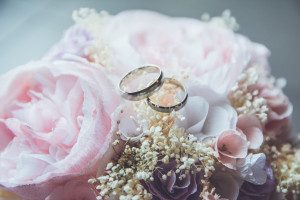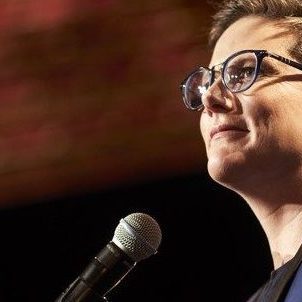 Not the same for gays and heterosexuals.
Not the same for gays and heterosexuals.
A funny thing happened the other day. I stumbled across a load of clips about the current crop of lesbian characters on TV.
Nothing new here as I spend an insurmountable amount of time online watching re-runs of the most precious of all of our favourite characters. I swear I could recite every word of every sentence of every scene between Bridget and Franky with my eyes closed.
But it got me thinking back to my early days as a young lesbian at the beginning of the 1990s and the strides made since in achieving and attaining equality and equal status in areas of life that heterosexuals take so obliviously for granted.
Of course, there was no Internet back then; the only outlets were the tabloid newspapers and magazines for gleaning information about the outside world. And a tiny chance that Ms Jodie Foster may indeed be a lesbian.
Glancing up at the TV, I saw a headline on the news about a ground-breaking ruling for heterosexual couples who wanted but could not enter into a civil partnership. I sat aghast as I listened incredulously to the reporter explain how civil partnerships would be extended to heterosexual couples. Some even want civil partnerships with siblings and family to get around inheritance laws.
Same-sex marriage became law in the UK in 2014.
Before that, same-sex couples were graciously allowed to enter into a civil partnership after an eternity of discrimination.
Civil partnerships were introduced so same-sex couples could form a union and commit to a partner for life in the same way as heterosexual couples do through marriage, but without all of the trappings of a bible/church/state blessed wedding between a woman and a man.
Now, some heterosexual couples in the UK feel as though they are being discriminated against because they are not allowed to enter into a civil partnership. And the bureaucrats of the United Kingdom and the European Union have agreed in their wisdom that they are being discriminated against. Therefore they should be allowed to enter a civil partnership if they want.
I have no issues with anyone wanting to enter a civil partnership, marriage, or both. I prefer neither personally.
But would those same people also care to accept all the bigotry, discrimination, and intolerance the LGBT+ community face daily? Don’t they realise that civil partnerships were only introduced in the first place so that we in the LGBT+ community could make a commitment and weren’t allowed to get married?
Even today, under The Marriage (Same Sex Couples) Act 2013, the right to marry in a Church of England church is illegal. Or that leaders of other religious groups in the UK raised the roof and played merry hell demanding the same legal exemptions under the Act as the Church of England is afforded by refusing to allow same-sex marriages on their premises.
They need not have worried themselves unnecessarily, though, as a set of ‘cast iron, quadruple lock of measures have been put in place to ensure religious organisations cannot be forced or compelled to marry same-sex couples or to allow same-sex marriage to take place on their premises.
And as an extra precaution, The Equality Act 2010 has been changed to ensure that no discrimination claims can be filed against any religious organisation or individual refusing to marry a same-sex couple. It’s all a bit extreme but very much needed to alleviate the homophobes.
What if you want the whole shebang, though? The dress, the flowers, the bridesmaids and the all-important church wedding? Well, don’t be gay and religious because they don’t go together, according to the gospel of St Homophobe.
To say I am beyond bored and tired of having to sap up other people’s awkwardness and discomfort around sexuality doesn’t do justice.
I do not doubt that heterosexual couples clearly believe their human rights have been invaded here and have only sought to put right a terrible wrong.
But I also can’t forget the hopelessness and isolation I felt as a young, gay woman when all of my peers and work colleagues were looking forward to their weddings, and I wonder if they can say they felt the same way once?




